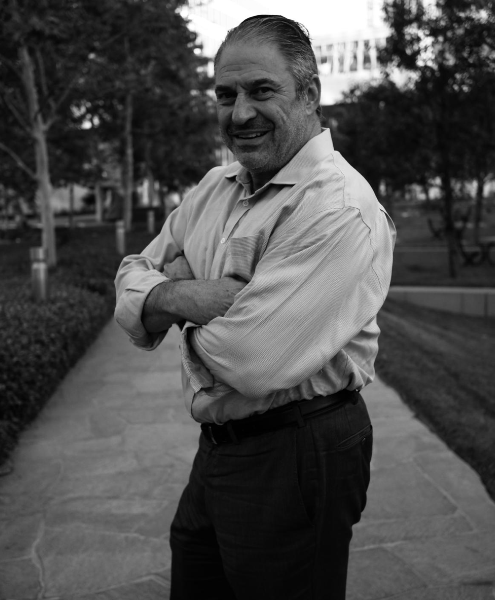The infamous “if you don’t stand for something, you’ll fall for anything” quote, and the idea behind it, can be applied to nearly any point in history; today being no exception. Between the need for instant-gratification that we’re constantly conditioned towards, and the ever-growing problem of keeping up with the “Jones’ of Instagram,” we as a whole, need an anchor. We, as a society, and on an individual level, need something to stand for—no matter what it may be for you. Something, or things, that are unwavering, no matter what life throws our way. This week’s episode of The Antony Gordon Show explores this very topic with Tamir Goodman, who was dubbed the “Jewish Jordan”—referencing NBA all-star Michael Jordan—by Sports Illustrated. Goodman, who once walked away from his dream of playing for the NBA to pursue his spiritual path, knows better than most what it means to really “stand for something.”
Due to his position as an Orthodox Jew, Goodman could not play basketball games on Saturdays, and when faced with the choice of a promising career with the NBA and his faith, he chose the latter. Forgoing the temptation of immediate success, and all the starry luster that it can bring, he became a role model—a symbol of integrity and character—for sticking his ground and upholding his values above all else. Such an act garners respect and is typically seen as an admirable quality, yet it seems to be dwindling in today’s social media-driven world. Gordon explains this phenomenon and the commonly experienced “FOMO” of 2020, as deriving from many people no longer being anchored, or “rooted in their principles.” This prevailing issue is at the heart of various problems in today’s society—like the rising depression rate, and growing popularity of nihilistic views. It breeds negativity, and negative traits.
Gordon elaborates on the benefits of having deep principles and how they help one with everything from overcoming adversity, to facing life’s many hurdles. “When things that we planned—beautiful things—happen, we need to be grateful, and when unplanned things happen, we need to be graceful.” Such a reaction comes from a deep sense of self, which goes hand-in-hand with having integrity. Finding ourselves in a seemingly never-ending collective storm, now is the time to find an anchor within that allows for a sense of stability—something you can turn to and rely on—no matter the circumstances that are out of our control. In the same light Gordon offers advice for dealing with poor self-talk and negative feelings: “It’s absurd to allow toxic thoughts to live in your head rent free.” Meaning, thoughts and emotions should be observed, acknowledged, and if they are “bad,” let them go—something Gordon learned early on in his life and attests to much of his success.
To hear the full conversation and learn more about Goodman’s unique background and story, head to either Spotify or Apple Podcasts.

